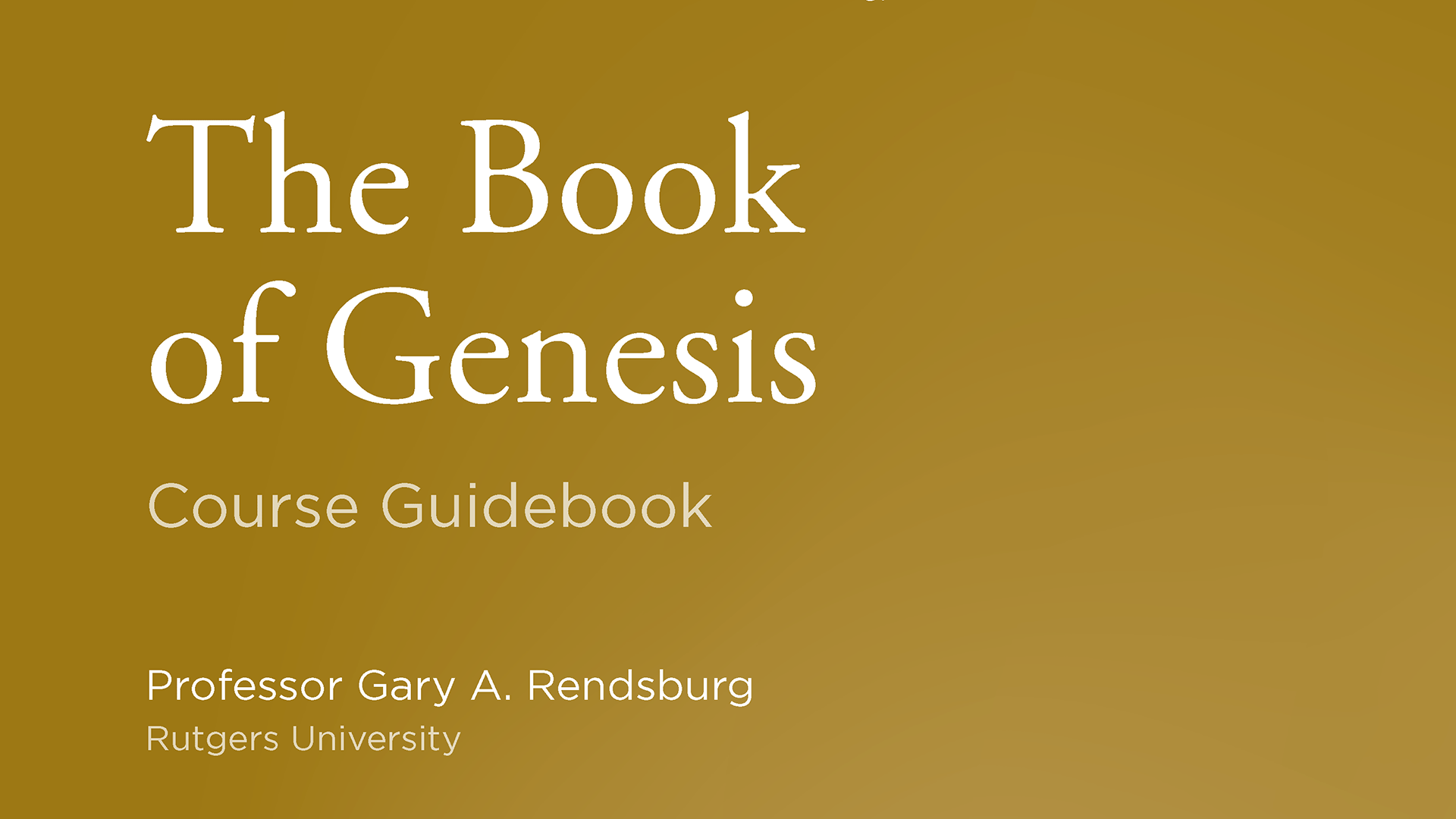The Book of Genesis, a Great Courses course, by Professor Gary A Rendsburg

Some years ago I visited parts of the far North of Ethiopia, one of the poorest regions of the world. I’d travelled to Ethiopia a couple of times before, but this was the most remote part I had visited. I had hired a car, driver and guide for a day to visit Abuna Yemata Guh, a church in a cave in a cliff-face at the most Northern tip of Ethiopia.
On the journey to the church the guide explained to me that one of the problems for locals of this region is that tribesmen will ride into villages and abduct girls and young women to be their “wives”. I don’t think I need add any comment to this. I’ll come back to it…
As you will see from my other recent reviews, the current focus of my interest is The Book of Genesis, in particular the story of Adam and Eve. I’ve listened to quite a few of The Great Courses, and they tend to be pretty good, so I thought it would be good to do their course on The Book of Genesis by G A Rendsburg.
One of the big problems with trying to research this kind of thing is finding serious academic works on it. Most people who spend their lifetime studying the history of Christianity or the books of the Bible tend to be believers. Of course these academics try to project a tone of serious and impartial academic study, but it is practically impossible for them to really be neutral, and their bias show through. Frustratingly, that is the case with this course.
Rendsburg gives his personal spin on the books of Genesis and how he thinks they should be read. Genesis is full of contradictions and weirdness, as if it is a book stitched together from multiple sources. Which it almost certainly is, and there is a lot of academic scholarship to support that view. Rendsburg doesn’t like that idea, and wants us to understand that it is actually a brilliant work, written by a single author. He also doesn’t seem to like the idea that the authors of Genesis might have been a more primitive people, living in a more primitive time. He takes stories which seem be suggest that these Bronze Age people were as they appear in the stories — ethically primitive, believing in supernatural powers and multiple gods — and makes them into lessons with subtle and sophisticated ethical meanings.
Let me give you and example. In Chapter 12 of Genesis, “The Lord” appears to a 75 year old Abraham and tells him to travel, and that if he does then he will give him a load of land and Abraham will start a nation. So Abraham took his wife Sarai, their slaves (“the people they had acquired”) and all their stuff and passed through some land with a magic tree, and then on to Egypt. Before they went into Egypt Abraham realized that, since his wife was really hot, the Egyptians might kill him and take her. So he told her to tell everyone she was his sister. The difference being apparently that she was no longer fair game for abduction if she was his sister. So anyway, the Pharaoh saw that Abraham’s wife was hot and, since she was his sister and not his wife, he could have her for his own. So he took her. But then the Pharaoh’s household was afflicted with terrible plagues and the Pharaoh found out that Sarai was Abraham’s wife so blamed Abraham because the plagues must be a punishment from the Lord. So he told Abraham and Sarai to fuck off. But there is a plot twist! In Genesis 20:12, we learn that Sarai really is Abraham’s half-sister! Also his wife! Yay! 🥳
So what are we to make of this bizarre story? Rendsburg has the answer — in a lesson of the course called Women in the Bible, we find out that Sarai is an “important female character” in Genesis, and this story is all about making us feel sympathy towards Sarai. This is actual text from the course guidebook:
In the above two stories, our sympathy lies with Sarah. Abraham, the male, is the dominator; Sarah, the female, is the passive one. Abraham speaks; Sarah never does — in both stories. She is objectified. Our hearts go out to her.
So rather than simply interpret this as a story from a primitive people that keep slaves, rape and murder, and treat women like cattle, we are to understand that the Bronze Age author was using a sophisticated literary technique to make his contemporaries have sympathy with the woman in the tale. It’s like something from Monty Python. I imagine a group of goat herders sitting around a camp fire listening to the story, commenting on how oppressed women are in their society and how things must change. What bollocks.
I said I’d get back to my story about tribesmen in Northern Ethiopia abducting girls to be their “wives”, but there is probably no need. I’m sure you get the link — the stories in Genesis were written by primitive people, and they should be read as such.